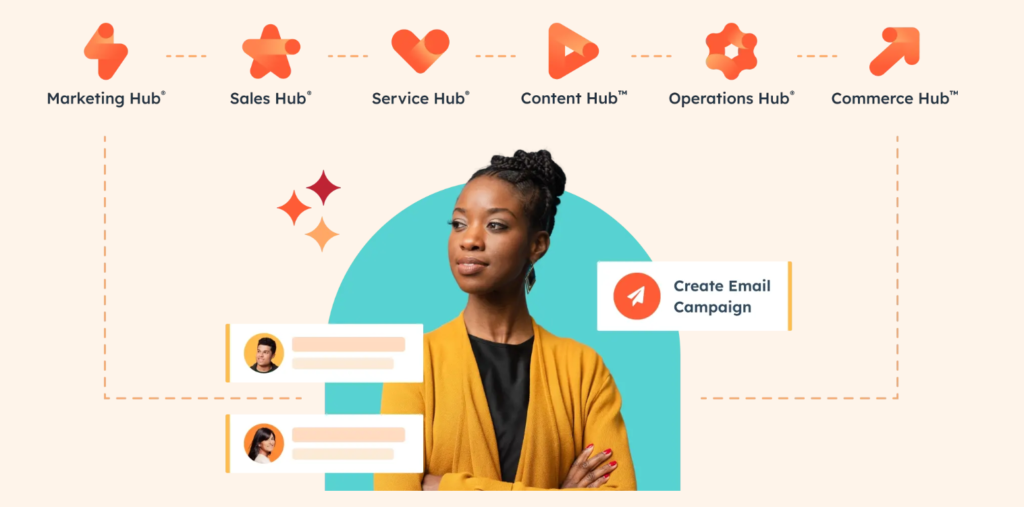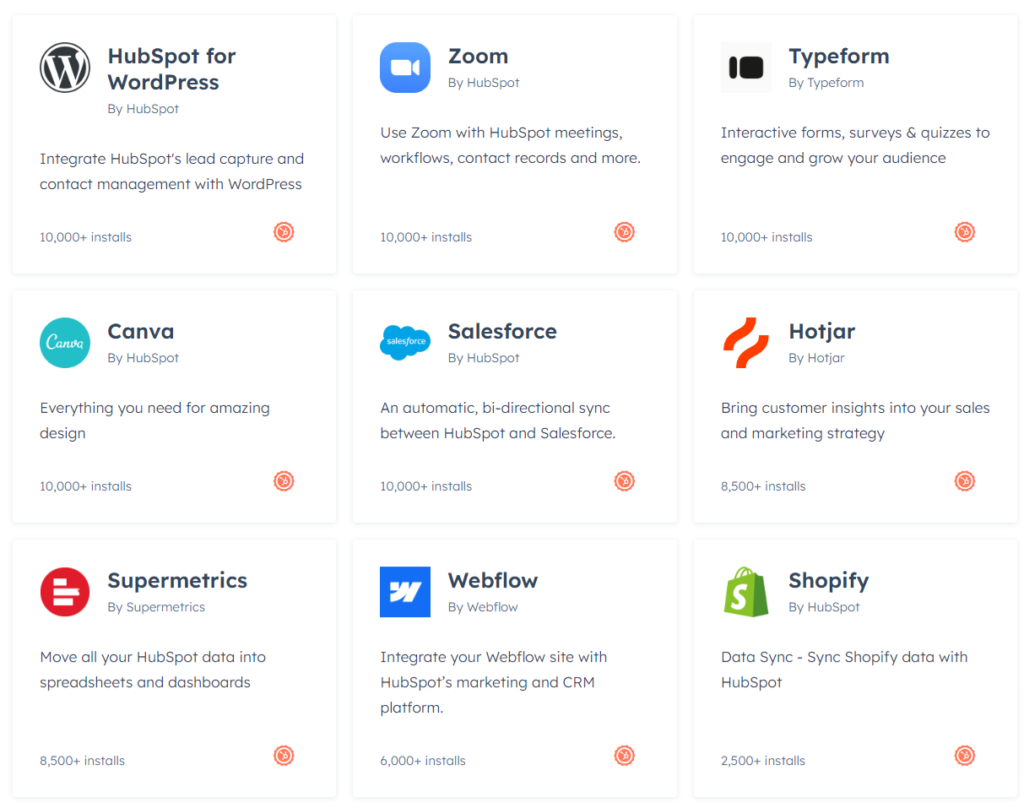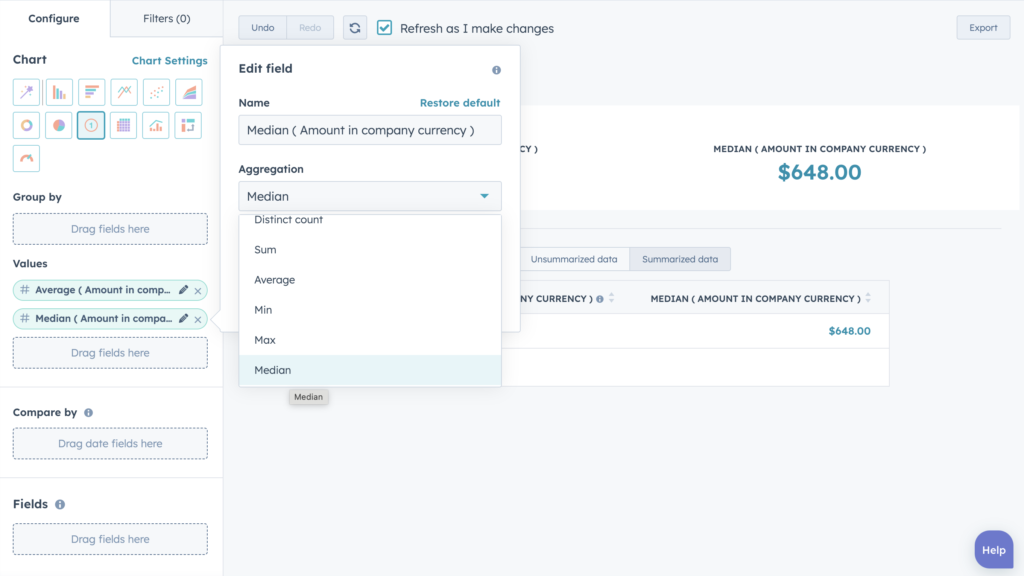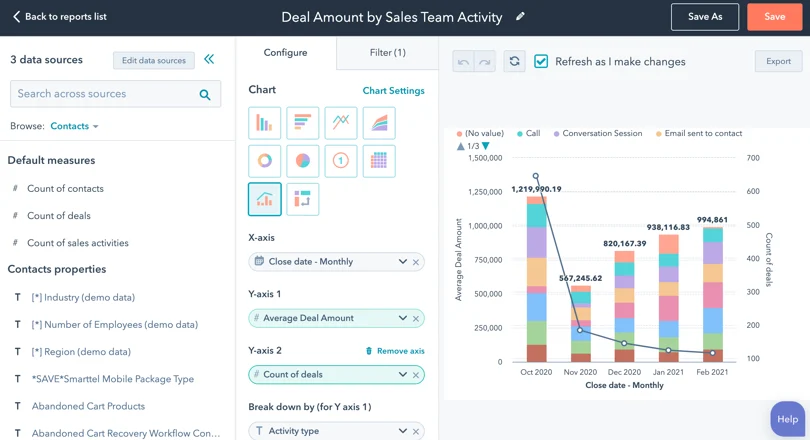HubSpot in 2024: Evolution Beyond just a CRM
HubSpot is reinventing the wheel with its latest strategic updates, focusing on customization, marketplace expansion, and transparent pricing. Dive into how these changes could benefit your business.
Download Inbound Marketing guide
In the dynamic landscape of customer relationship management (CRM) software, HubSpot CRM, stands out as a game-changer. As we look ahead to 2024, the role of HubSpot CRM and marketing technology is set to evolve significantly, offering businesses a comprehensive solution that combines ease of use with powerful functionalities in contact management and marketing contacts. While traditional CRMs like Salesforce may lag behind in adaptability and user-friendliness, HubSpot CRM continues to lead the pack with its intuitive interface and robust features.
This year, the company has taken significant strides to redefine its strategic direction and reach. These changes aim to provide companies with an enterprise plan, a more flexible, customizable, and comprehensive platform, including additional features. Here’s an in-depth look at the recent strategic updates and their implications for businesses, marketers, and companies considering HubSpot or those already within its ecosystem.
A Platform and Solution Hybrid
At the heart of HubSpot’s strategic shift is its endeavor to serve as both a ready-to-use solution and a highly customizable platform. This dual approach caters to a wide array of business needs, from companies seeking straightforward products to enterprises requiring bespoke solutions with additional features. This versatility signals a new phase in CRM technology, where adaptability to customer-specific processes isn’t just an option; it’s a priority.

Expanding the Marketplace to Outshine Competitors
HubSpot’s ambitious expansion of its marketplace is a strategic maneuver aimed squarely at competitors, notably Salesforce. By bolstering the number and diversity of its add-ons, HubSpot is not merely enhancing its ecosystem; it’s crafting a comprehensive, integrated experience with additional features and support. This initiative is designed to arm businesses with an array of tools and applications that drive efficiency, foster customer engagement, and accelerate growth, directly within the HubSpot platform.

Pioneering Pricing Model Changes
The transition to a seat-based pricing model marks a significant evolution in how HubSpot approaches customer engagement and transparency. By introducing “Core Seats,” “View-only Seats,” and a distinct “Partner Seat” for solution partners, HubSpot is aligning more closely with industry preferences for clear, predictable pricing for enterprise users. This approach not only enhances transparency but also adapts to the varied needs of enterprise businesses, ensuring that the platform remains accessible and scalable to users.
However, note that though it has become clearer for enterprises and even less expensive for small companies, middle-size companies may start paying more than they could earlier. However, this is only if they set up their accounts in an improper way.
Leveraging the Latest Technological Advances
The February update was a landmark moment for HubSpot, showcasing its commitment to innovation through a variety of new features and email plans.
- Custom Events:
This feature stands out for its potential to revolutionize automated sales processes, allowing for unprecedented customization and efficiency. Along with custom objects, which are heavily pushed by HubSpot due to their vast power but low adoption, custom events may become a scarily powerful feature to make automated sales even more automated.
- Google Enhanced Conversions for Leads:
Finally! Sending lifecycle stages to Google Ads out-of-the-box is a long-awaited improvement that will help bid and target Google Ads much better to acquire not only leads but also deals and opportunities.
- AI Integration Across the Board:
Gen AI is now embedded as much as possible: AI writes emails, AI writes social posts, AI writes ads, and many more. And all that directly from the HubSpot UI.

- Cookie Consent Banner Customization:
HubSpot now offers customizable cookie consent banners, aligning with brand aesthetics while ensuring compliance.
- SMS Integration:
Recognizing SMS as a crucial communication channel, HubSpot’s inclusion of SMS capabilities within its suite of tools underscores its holistic approach to customer engagement.
- Required Field Mappings:
Now it is possible to MAKE sales reps stop creating leads with just a name and an email only and make them add some more information about a lead.
- Median Aggregation:
HubSpot reporting has become even more comprehensive and valuable, offering insights and tracking for nearly any activity in the CRM and beyond.

- AI-Powered Chatbot for Service Hubs:
The ability to create up to five distinct knowledge bases within a single HubSpot account marks notable advancements in improving customer service and support.
- A/B Testing in Sequences and Lead Form Routing:
These features introduce new ways to optimize outreach and lead management, further enriching the sales enhancement toolkit available within HubSpot.
Moreover, the introduction of a new Commerce Hub positions HubSpot as a formidable player in the e-commerce domain, offering tools and integrations specifically designed to enhance e-commerce marketing efforts. The Leads & Contacts feature, still in the pipeline plan, promises to offer novel ways of managing and nurturing leads within the HubSpot ecosystem.
ROI Enhancement Strategies with Hubspot CRM
Analytics for ROI
CRM analytics play a crucial role in enhancing return on investment (ROI) for businesses. By leveraging CRM data, companies can measure the impact of their marketing campaigns accurately. Predictive analytics within CRM systems enable organizations to forecast ROI based on historical data trends.
- Utilizing CRM analytics allows businesses to make informed decisions based on real-time insights.
- The correlation between CRM analytics and ROI is evident in the ability to track customer interactions and identify profitable opportunities.
- Businesses can optimize their marketing strategies by analyzing CRM data to understand customer behavior and preferences.

Sales Performance Boost with Hubspot
Tools Integration
CRM systems like HubSpot CRM offer seamless integration with existing business tools, enhancing operational efficiency. By connecting with platforms like Salesforce, sales reps can access all crucial data in one place, streamlining workflows. The unified platform eliminates the need to switch between multiple applications, saving time and reducing errors.
Integrating CRM tools with other essential business software brings numerous benefits. It allows for real-time data synchronization, ensuring that all teams are working with the most up-to-date information. This integration enhances collaboration between departments and enables a more holistic view of customer interactions. As a result, businesses can provide more personalized services and targeted marketing campaigns.
Discuss your scaling with
42DM marketing advisor
Set up a call
Process Enhancement
CRM systems play a crucial role in streamlining business processes by centralizing customer data and interactions. With automated workflows and task management features, HubSpot CRM enables efficient handling of leads and opportunities. Sales reps can prioritize tasks based on lead scoring and engagement levels, maximizing their productivity.
Automated processes within CRM platforms optimize internal workflows by reducing manual tasks and automating repetitive actions. This results in faster response times to customer inquiries, improved lead nurturing strategies, and better overall customer satisfaction. By leveraging these capabilities, businesses can achieve higher conversion rates and increased revenue generation.
Growth Through Analytics with Hubspot
Leveraging Data
Businesses can leverage CRM data to drive growth and enhance customer relationships. Utilizing statistics from CRM systems enables companies to make informed decisions. By analyzing customer interactions, businesses can personalize marketing strategies for improved engagement.
Extracting insights from CRM data allows businesses to understand customer behaviors and preferences better. This data-driven approach empowers organizations to tailor their offerings according to individual needs. Utilizing statistics helps in identifying trends, predicting future outcomes, and optimizing overall business performance.
- Enhanced customer segmentation
- Personalized marketing campaigns
- Improved customer retention rates
Strategic Decisions
CRM insights play a crucial role in shaping strategic decisions within organizations. By analyzing CRM data, businesses gain valuable information for developing long-term plans. Predictive analytics tools enable companies to forecast trends and anticipate market changes effectively.

Aligning CRM data with organizational objectives ensures that strategic decisions are in line with business goals. This alignment enables companies to prioritize initiatives based on data-backed insights. By incorporating CRM statistics into decision-making processes, organizations can achieve sustainable growth.
- Forecasting future market trends
- Aligning strategies with organizational goals
Strategic Marketing
CRM platforms serve as valuable tools for supporting strategic marketing initiatives. These platforms empower businesses to implement data-driven marketing strategies that are essential for achieving success. By utilizing CRM analytics, companies can align their marketing efforts with overall business objectives effectively.
- Benefits of CRM-enabled strategic marketing include improved customer segmentation and personalized communication.
- Data-driven marketing strategies supported by CRM platforms lead to higher engagement rates and conversion rates.
- Aligning marketing efforts with business objectives through CRM ensures a cohesive approach towards achieving organizational goals.
Campaign Optimization with Hubspot
Analytics Utilization
CRM analytics are essential for making informed decisions based on data rather than assumptions. By analyzing customer interactions and behaviors, businesses can gain valuable insights into preferences and trends. Leveraging CRM analytics allows companies to tailor their strategies effectively.
Businesses can utilize CRM data for strategic planning, such as identifying high-value customers, forecasting sales trends, and improving customer retention. Through detailed analysis of customer data, companies can develop targeted marketing campaigns and enhance overall customer experience. This data-driven approach leads to higher efficiency and better decision-making processes.
Real-time analytics provided by CRM systems enable businesses to optimize sales and marketing strategies promptly. By monitoring real-time data on customer engagement, website interactions, and email responses, companies can adjust their campaigns instantly for maximum impact. This agility in decision-making ensures that businesses stay competitive in a fast-paced market environment.
Marketing Efforts
CRM platforms play a crucial role in supporting targeted marketing efforts by providing comprehensive customer profiles and behavioral insights. With access to detailed information on customer preferences and purchase history, businesses can create personalized marketing campaigns that resonate with specific target audiences. This targeted approach increases the effectiveness of marketing initiatives.
Personalization is key in modern marketing, and CRM systems facilitate this by enabling businesses to segment customers based on various criteria. By tailoring messages and offers to different customer segments, companies can enhance engagement and build stronger relationships with their audience. CRM tools empower marketers to deliver relevant content at the right time to the right audience.
The impact of CRM analytics on measuring marketing campaign effectiveness cannot be overstated. By tracking key performance metrics such as conversion rates, click-through rates, and ROI, businesses can assess the success of their campaigns accurately. This data-driven evaluation allows companies to refine their strategies continuously and allocate resources more efficiently for future campaigns.

A Strategic Leap Forward
HubSpot’s strategic evolution is not just a response to market demands but a forward-thinking move to redefine what businesses can expect from their CRM platform. By prioritizing customization, marketplace breadth, and transparent pricing, HubSpot is poised to meet the nuanced needs of modern businesses, empowering them to achieve their goals with greater efficiency and impact.
As these strategic changes unfold, HubSpot continues to solidify its position as a leader in the CRM space, promising an exciting future for businesses looking to leverage the power of a truly adaptive and comprehensive platform.
Frequently Asked Questions
What are the key enhancements in HubSpot CRM for 2024?
HubSpot CRM in 2024 brings significant improvements in Reporting Evolution, Sales Tools Enhancement, Marketing Analytics Importance, Data-Driven Decisions, Customer Interaction Boost, Campaign Optimization, Growth Through Analytics, Sales Performance Boost, and ROI Enhancement Strategies.
How does HubSpot CRM help businesses make data-driven decisions?
HubSpot CRM offers advanced reporting features and analytics tools that provide valuable insights into customer interactions, sales performance, and marketing campaigns. By leveraging data-driven decisions, businesses can optimize their strategies and drive growth effectively.
Can HubSpot CRM improve sales performance for businesses?
Yes, HubSpot CRM offers tools for tracking sales activities, managing leads effectively, and analyzing sales performance metrics. By utilizing these features, businesses can enhance their sales processes, streamline workflows, and ultimately boost their sales performance.
How does HubSpot CRM contribute to enhancing ROI for businesses?
HubSpot CRM enables businesses to track the return on investment (ROI) of their marketing campaigns by providing detailed analytics on lead generation, customer acquisition costs, and conversion rates. This data empowers businesses to optimize their strategies and maximize their ROI effectively.
What role does marketing analytics play in HubSpot CRM for 2024?
Marketing analytics are crucial in HubSpot CRM as they enable businesses to measure the effectiveness of their marketing efforts, identify trends, and make informed decisions. By leveraging marketing analytics within HubSpot CRM, businesses can refine their marketing strategies for better results.
Liking what you’re reading?
Subscribe for moreRead more of our blog
Reach new heights
Let's find the best mix of services to cover your business needs.
